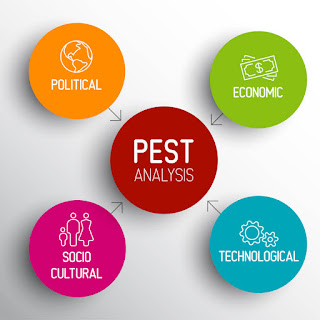
Offering workshops, conferences, and various learning assets are an ideal way to ensure that your team is equipped with the right tools and skillsets to improve workflow, client relations, and overall company growth. But while these events are informative and a great way to create an interactive learning environment, what additional steps are you taking to ensure that information is retained beyond the moment?
Research shows that leveraging the power of pre- and post-event educational outreach can aid in improving content retention. And whether you’re organizing new hire onboarding training sessions or skills-building support for existing talent, that translates to an event that improves your company's financial and professional goals.
Laying the Groundwork Before Your Event
Getting attendees engaged in your educational events before they occur not only improves attendance but can aid in preparing them for the immersive learning environment they’re about to experience. Along with general reminder emails, consider adding other features to your account management training outreach campaign such as a pre-event questionnaire or a networking feature.
The Benefit of a Pre-event Questionnaire
While responses might not be mandatory, these questionnaires can help event organizers better understand specific pain points that attendees would like to have addressed as well as develop a targeted topic list for breakout sessions or roundtables that support deeper, more meaningful discussions. Likewise, by taking the time to understand an attendee’s mind frame before the event, organizers can create lesson plans that are relevant and cohesive.
Leveraging the Power of Networking
The benefit of pre-event networking is obvious for general industry events with attendees from multiple organizations. But even for internal executive coaching events geared towards current employees, it’s important to encourage attendees to build rapport with each other.
Along with helping your team to build deeper relationships across departments, they can also better understand the unique challenges each unit faces. This tactic not only fosters better engagement during the event but ensures that teams work more cohesively after the event.
Solidifying Knowledge Retention After the Event
While pre-event outreach helps to mentally prepare attendees for the information being presented, post-event outreach is also critical to ensure retention. Multiple options are available to encourage continuing education opportunities long after the event has ended. Consider a Mobile-Text Challenge, where learners are sent custom questions after a learning event and can compete against their peers.
Material Availability Post-event
One of the smartest actions event organizers can take is to provide online access to learning materials after the event. Along with providing a point of reference, this tactic acknowledges that every individual learns differently and allows for attendees to control learning at a pace that complements not just their learning style but makes allowances for event distractions that might otherwise make in-person learning difficult.
Multiple Contact Touchpoints
It’s understandable that after an educational event, questions may arise about the material covered during the course. Rather than leaving attendees adrift to figure things out independently, offer them an option to get in touch with event organizers or speakers.
Again, this option not only opens a pathway for communication but reduces any barriers to learning. Event organizers can encourage interaction either by including a QR code with access to contact information or leverage the power of email or SMS outreach to connect directly with attendees.
Building an Event That Educates and Fosters Results
For busy professionals, the time investment associated with attending virtual or in-person events is substantial. This is why The Brooks Group creates programs that build opportunities for continued education while also developing an environment that’s conducive to building relationships.
Along with a robust training program portfolio, we are also a top healthcare consulting firm and pharmaceutical market research company helping healthcare organizations develop strategies for market growth and opportunities.
This blog was originally posted on https://thebrooksgrouponline.com/2021/05/solidifying-knowledge-retention-from-a-training-event/



